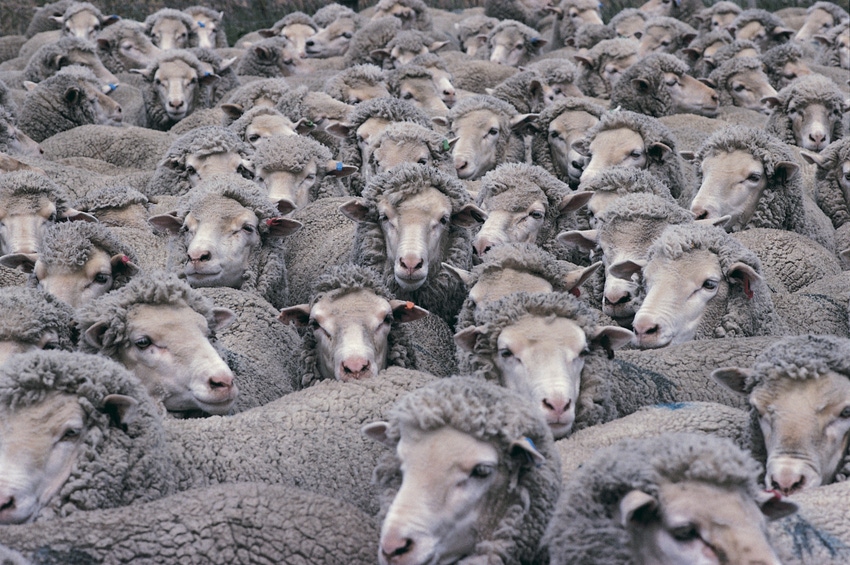Project to make sheep genomic testing cost effective
Grant to increase number of genetic traits reportable and create indexes for production traits crucial to sheep producers.
December 4, 2019

A project to provide genetic testing for sheep to help producers minimize the impact of diseases and improve valuable traits will receive a grant from the Idaho Global Entrepreneurial Mission Council (IGEM).
The $209,595 grant to University of Idaho animal science professor Brenda Murdoch and Meridian, Ida.-based RILE Ag will help sheep producers employ an inexpensive test to reduce economic losses due to diseases and enhance their flocks’ productivity, an announcement from the University of Idaho said.
“This grant money will be a tremendous asset for further research and development of Flock54,” Murdoch said. Specifically, it will allow her research team to increase the number of reportable genetic traits and create indexes for production traits that are crucial to producers. The team will also create a new online reporting tool so producers can submit data with their DNA samples and receive their genetic report via this new online tool, she said.
Murdoch is fine-tuning the Flock54 genomic test, which provides a broad picture of a sheep’s “catalog” of genes. Variants or mutations in those genes can make the animal vulnerable to diseases such as ovine progressive pneumonia (OPP) or improve the animal’s weight gain and carcass quality.
RILE Ag is a subsidiary of Superior Farms, which works with sheep producers who are responsible for a third of the nation’s flocks.
“I am excited for RILE Ag and Superior Farms to continue our partnership with Dr. Murdoch at the [University of Idaho] to enhance and improve genetics within the American lamb industry,” said Lesa Eidman, director of producer resources and sustainability for Superior Farms and director of RILE Ag. “The opportunity to improve the U.S. sheep flock with genetic improvement and Flock54 testing is tremendous, and I am excited to be part of this groundbreaking technology for the sheep industry.”
This grant will help Idaho producers capitalize on a low-cost genetic tool to make genetic and economic gains in their production systems, Murdoch said. However, the scope of the project and the availability of the test is not limited to Idaho producers; all sheep producers have access to utilize the technology.
Murdoch, an assistant professor of animal genomics, helped develop the first genomic tests for cattle. She will monitor results from the sheep testing and use the information to identify other genetic traits of interest for producers, the announcement said.
The sheep test will cost less than $20 per animal and is capable of identifying an animal’s susceptibility to major diseases, a broad range of genetic traits and its parentage.
As an example, OPP can create major costs for sheep producers by reducing the number of lambs weaned by 8% and leaving survivors weighing 24% less. For a sheep producer marketing 1,000 lambs a year at $1.50/lb., the financial hit can total more than $37,000 a year -- twice the cost of testing -- and that’s the effect of just one of the diseases the test can detect, the university said.
Idaho commerce director Tom Kealey said the IGEM funding will help advance the use of Flock54 genomic selection tool by Idaho’s sheep producers and others nationwide. A Boise State University project also received funding, the IGEM Council announced Nov. 25.
“The commercialization goals of each award represent some of the best research in animal genome science, advanced fluid materials and laser technology at the University of Idaho and Boise State University, respectively,” Kealey added. “The genome research is for much better yield for sheep ranchers and processors but at a lower cost.”
Within the first six months of the test becoming available, more than 10,000 samples have been submitted for testing, the university said. The collaborators anticipate producers that will submit 150,000 test samples within the first three years, generating $2.25-3.00 million in sales. Within five years, the business projects that 500,000 samples will generate $10 million a year, leading RILE Ag to expand its lab and hire additional employees.
You May Also Like


.png?width=300&auto=webp&quality=80&disable=upscale)
